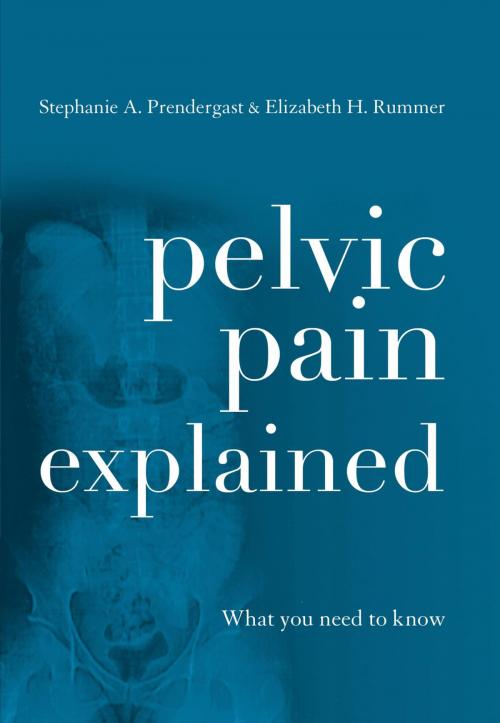Pelvic Pain Explained
What You Need to Know
Nonfiction, Health & Well Being, Medical, Specialties, Physical Medicine & Rehabilitation, Health, Ailments & Diseases, Pain Management| Author: | Stephanie A. Prendergast, Elizabeth H. Akincilar | ISBN: | 9781442248328 |
| Publisher: | Rowman & Littlefield Publishers | Publication: | January 7, 2016 |
| Imprint: | Rowman & Littlefield Publishers | Language: | English |
| Author: | Stephanie A. Prendergast, Elizabeth H. Akincilar |
| ISBN: | 9781442248328 |
| Publisher: | Rowman & Littlefield Publishers |
| Publication: | January 7, 2016 |
| Imprint: | Rowman & Littlefield Publishers |
| Language: | English |
At its heart, Pelvic Pain Explained is the story of how patients develop pelvic pain, the challenges patients and providers face throughout the diagnosis and treatment process, the difficult task of sifting through the different available treatment options, and the impact that an “invisible” condition has on a patient’s life and relationships, and much more. Those who develop pelvic pain find the path to proper diagnosis and treatment frustrating and unsuccessful, oftentimes because they are trying to work within the model of recovery they are used to; one in which they go to the doctor, maybe take some tests and then get a very specific diagnosis that dictates a very specific mode of treatment. This simply is not the path to healing from pelvic pain. Pelvic pain is a health issue that crosses the borders between medical disciplines and requires the patient to be a proactive participant in the healing process.
Here, Stephanie Prendergast and Elizabeth Rummer offer readers guidance on navigating a pelvic pain diagnosis and treatment, helping them to better understand their pain from a physiological perspective as well as how to digest the current treatment options available and put them on the path to healing. Providers, too, will gain a better understanding of the effectiveness of an interdisciplinary treatment approach. Major topics the book tackles include: the anatomy of the pelvic floor with an explanation of the many ways pelvic pain occurs; the different diagnoses and contributing factors associated with pelvic pain; a discussion of the current treatment landscape with guidance on how to navigate it; the vital role that PT plays in treatment; male pelvic pain; pregnancy and pelvic pain; sex and pelvic pain; the role of the patient in healing; the role of the brain in pelvic pain; and much more. Anyone with pelvic pain will find here a starting point on the road to healing and living pelvic pain free.
At its heart, Pelvic Pain Explained is the story of how patients develop pelvic pain, the challenges patients and providers face throughout the diagnosis and treatment process, the difficult task of sifting through the different available treatment options, and the impact that an “invisible” condition has on a patient’s life and relationships, and much more. Those who develop pelvic pain find the path to proper diagnosis and treatment frustrating and unsuccessful, oftentimes because they are trying to work within the model of recovery they are used to; one in which they go to the doctor, maybe take some tests and then get a very specific diagnosis that dictates a very specific mode of treatment. This simply is not the path to healing from pelvic pain. Pelvic pain is a health issue that crosses the borders between medical disciplines and requires the patient to be a proactive participant in the healing process.
Here, Stephanie Prendergast and Elizabeth Rummer offer readers guidance on navigating a pelvic pain diagnosis and treatment, helping them to better understand their pain from a physiological perspective as well as how to digest the current treatment options available and put them on the path to healing. Providers, too, will gain a better understanding of the effectiveness of an interdisciplinary treatment approach. Major topics the book tackles include: the anatomy of the pelvic floor with an explanation of the many ways pelvic pain occurs; the different diagnoses and contributing factors associated with pelvic pain; a discussion of the current treatment landscape with guidance on how to navigate it; the vital role that PT plays in treatment; male pelvic pain; pregnancy and pelvic pain; sex and pelvic pain; the role of the patient in healing; the role of the brain in pelvic pain; and much more. Anyone with pelvic pain will find here a starting point on the road to healing and living pelvic pain free.















